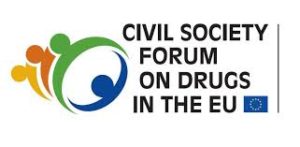 COVID-19 has put the world in the middle of a pandemic, resulting in unprecedented health and economic crisis. The pandemic has a particularly strong impact on the most vulnerable citizens of the European Union.
COVID-19 has put the world in the middle of a pandemic, resulting in unprecedented health and economic crisis. The pandemic has a particularly strong impact on the most vulnerable citizens of the European Union.
We – the Civil Society Forum on Drugs – would like to respond as regards the essential needs of People Who Use Drugs and ask for your guidance and coordination to support the EU Member States.
Many people who use drugs are specifically vulnerable due to their health vulnerabilities (often related to long-term diseases and other conditions which reduce the immune system), their social and economic situation (often combined with homelessness) and other factors, such as social isolation, stigma and criminalization.
Many marginalized people who use drugs lost their livelihood and housing due to the lockdown measures and urgent action is needed to prevent a humanitarian crisis. Indeed, as indicated by the United Nations expert on the Right to Health, “vulnerable groups of people who use drugs should be recognized as a high-risk population in order to mitigate the spread of the pandemic”.
Nevertheless, many EU members states have failed, so far, to develop and implement effective responses to protect and support this group. The European Monitoring Center on Drugs and Drug Addiction states, that “the current public health crisis raises serious additional concerns for the wellbeing of people who use drugs, ensuring service continuity for those with drug problems, and the protection of those offering care and support for this population”.
Therefore, the Civil Society Forum On Drugs calls on the European Commission to specifically address the vulnerable position and needs of people who use drugs and support member states and service providers with guidance. Support measures for people who use drugs should include:
• Acknowledging drug services as essential socio-sanitary services in order to ensure appropriate support from the authorities
• Ensuring the availability of personal protective equipment (disposable masks, hand sanitisers etc.), and, if needed, food, water and basic hygienic tools in every drug service setting for service providers, peer workers, and clients (including in prisons)
• Ensuring that people who use drugs have ongoing and unrestricted access to drug treatment and harm reduction services (e.g. including Opioid Substitution Treatment-OST, provision of clean needles and other drug using paraphernalia, and naloxone)
The Civil Society Forum on Drugs (CSFD) is an expert group of the European Commission, created in 2007 on the basis of the Commission Green Paper on the role of civil society in drugs policy in the EU.
The CSFD membership comprises 45 CSOs from across Europe and representing a variety of fields of drug policy, and a variety of stances within those fields.
Its purpose is to provide a broad platform for a structured dialogue between the EC and the European civil society which supports drug policy formulation and implementation through practical advice.
This briefing paper is developed in the framework of the European Civil Society Forum Project, which is financed by the European Commission.
• Amending regulation that ban or limit take-home doses of OST and harm reduction materials, to avoid unnecessary contact
• Recommending consistent implementation of drug demand reduction based on minimum quality standards to meet the real needs of target populations in this time of pandemic crisis, especially people who use/inject drugs, professionals working with this target group, young people at risk, homeless, unemployed etc.
• Ensuring access to basic services and day and night shelter facilities – with adequate safety precautions in place – for people experiencing homelessness without overcrowding and support housing first initiatives
• Providing income substitution and housing support for marginalised communities who lost their livelihood due to the crisis
• Reducing prison population through early releases, pardons, amnesties and non-coercive alternatives to incarceration for of people arrested for, charged with or convicted of minor or nonviolent drug offences, while ensuring continuity of care and access to adequate housing after release
• Deprioritising law enforcement responses to the utmost extent as these measures increase further criminalisation, can obstacle the protection of individual and public health (including by leading to unsafe drug consumption practices) and hinder reaching out to people who use drugs and the provision of support services
• Supporting initiatives and emergency services with adequate funding opportunities (including solidarity funds for other regions, especially Eastern Europe and Central Asia)
• Recommending significant investments in evidence-based prevention programmes and other interventions in the field of mental health as a consequence of present pandemic crisis and lockdown measures (e.g. many people suffer from mental health issues due to lockdown, and selfisolation, such as anxiety, depression, stress etc.)
• Endorse measures concerning the re-entry and aftercare processes which has and will become very critical on people with substance use disorders (preventing relapses, vocations services due to the lack of employment, alternatives to social distancing)
• Support measures should be both during this critical period of social isolation and after. Once this health emergency phase is over, there will be an urgency to adopt concrete measures to mitigate the health and social consequences that this crisis will mean for person who use drugs. Moreover, it will be necessary to anticipate the movements that the drug market will experience and the effects this will have on people who use drugs.



